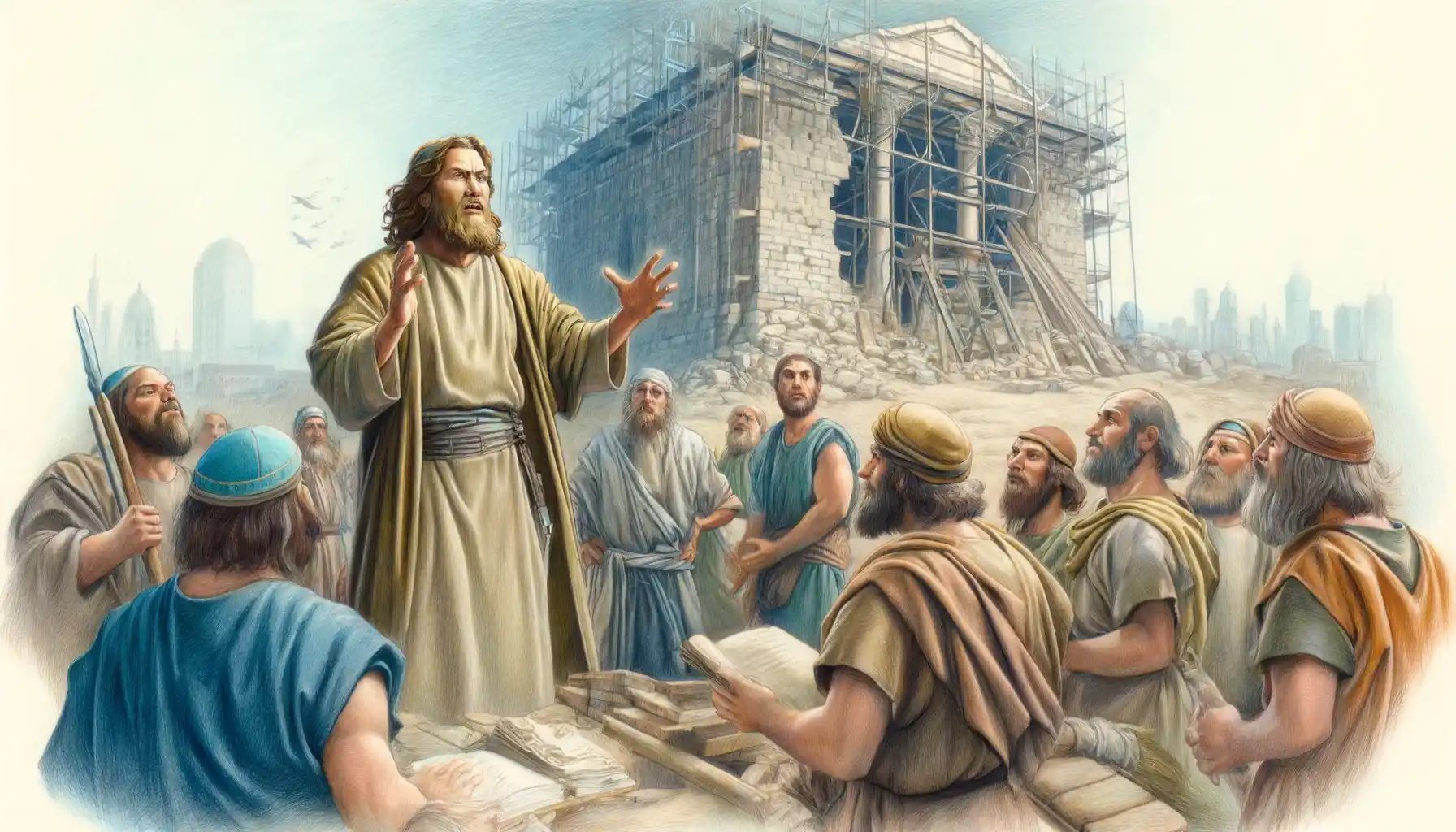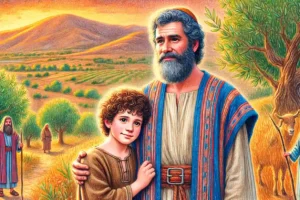
Haggai: Prophet who Encouraged the Jews to Rebuild the Temple
Haggai, a prophet in the Hebrew Bible, played a crucial role in encouraging the Jews to rebuild the Temple in Jerusalem after their return from Babylonian exile. His messages focused on prioritizing the construction of the Temple to restore their relationship with God.
Quick Facts
- Post-Exilic Prophet: Haggai prophesied after the return of the Jews from Babylonian exile, around 520 B.C.
- Rebuilding the Temple: His primary message was to urge the Jews to resume and prioritize the reconstruction of the Temple.
- Four Prophecies: The Book of Haggai contains four distinct messages delivered over a few months.
- Focus on God’s House: Haggai criticized the people for living in paneled houses while the Temple lay in ruins.
- Divine Assurance: He assured the people that God was with them and that the latter glory of the Temple would be greater than the former.
- Encouragement to Zerubbabel: Haggai gave specific encouragement to Zerubbabel, the governor of Judah, highlighting his role in the reconstruction.
- Shortest Book: Haggai is one of the shortest books in the Old Testament, consisting of only two chapters.
Historical and Cultural Context
Haggai’s prophecies came during a crucial period in Jewish history. After the Babylonian Empire fell to the Persians in 539 B.C., King Cyrus of Persia issued a decree allowing the Jews to return to Jerusalem and rebuild the Temple (Ezra 1:1-4). However, the reconstruction efforts faced opposition and delays, leaving the Temple unfinished.
Call to Rebuild the Temple
Haggai’s ministry began in 520 B.C., approximately 18 years after the first group of exiles returned to Jerusalem. The people had started rebuilding the Temple but had stopped due to various pressures and priorities. Haggai’s first prophecy (Haggai 1:1-11) rebuked the people for neglecting the Temple while living in comfortable houses. He emphasized that their struggles and lack of blessings were due to their failure to honor God by completing His house.
Message of Encouragement
Haggai’s second prophecy (Haggai 1:12-15) brought a message of encouragement. He assured the leaders, Zerubbabel the governor and Joshua the high priest, as well as the people, that God was with them. This divine assurance reinvigorated their efforts, leading to the resumption of construction.
Promise of Glory and Peace
In his third message (Haggai 2:1-9), delivered during the Feast of Tabernacles, Haggai addressed the discouragement among the people who remembered the former glory of Solomon’s Temple. He prophesied that the latter glory of the rebuilt Temple would surpass the former, promising that God would fill the Temple with His glory and grant peace.
Blessings for Obedience
Haggai’s fourth and final prophecy (Haggai 2:10-23) highlighted the theme of blessings for obedience. He conveyed that from the day the foundation of the Lord’s Temple was laid, God would bless the people. This prophecy also included a special message to Zerubbabel, declaring him as God’s chosen servant, a signet ring, symbolizing God’s authority and favor.
Theological Themes
Haggai’s prophecies emphasize several key theological themes:
- Priority of Worship: Haggai stressed the importance of prioritizing worship and honoring God by rebuilding the Temple.
- Divine Presence and Encouragement: He assured the people of God’s presence and support in their efforts.
- Obedience and Blessing: The prophet highlighted the connection between obedience to God and receiving His blessings.
- Future Glory: Haggai’s message pointed to a future hope and glory that would surpass the past, foreshadowing the coming of the Messiah and the establishment of God’s ultimate kingdom.
Legacy and Impact
Haggai’s ministry had a profound impact, revitalizing the reconstruction of the Temple, which was completed in 516 B.C. His messages continue to inspire and remind believers of the importance of prioritizing their relationship with God and trusting in His promises.
Conclusion
Haggai, the post-exilic prophet, played a vital role in encouraging the Jews to rebuild the Temple in Jerusalem. His messages emphasized the importance of prioritizing God’s house, provided divine assurance, and promised future blessings and glory, leaving a lasting legacy in the history of Israel.



